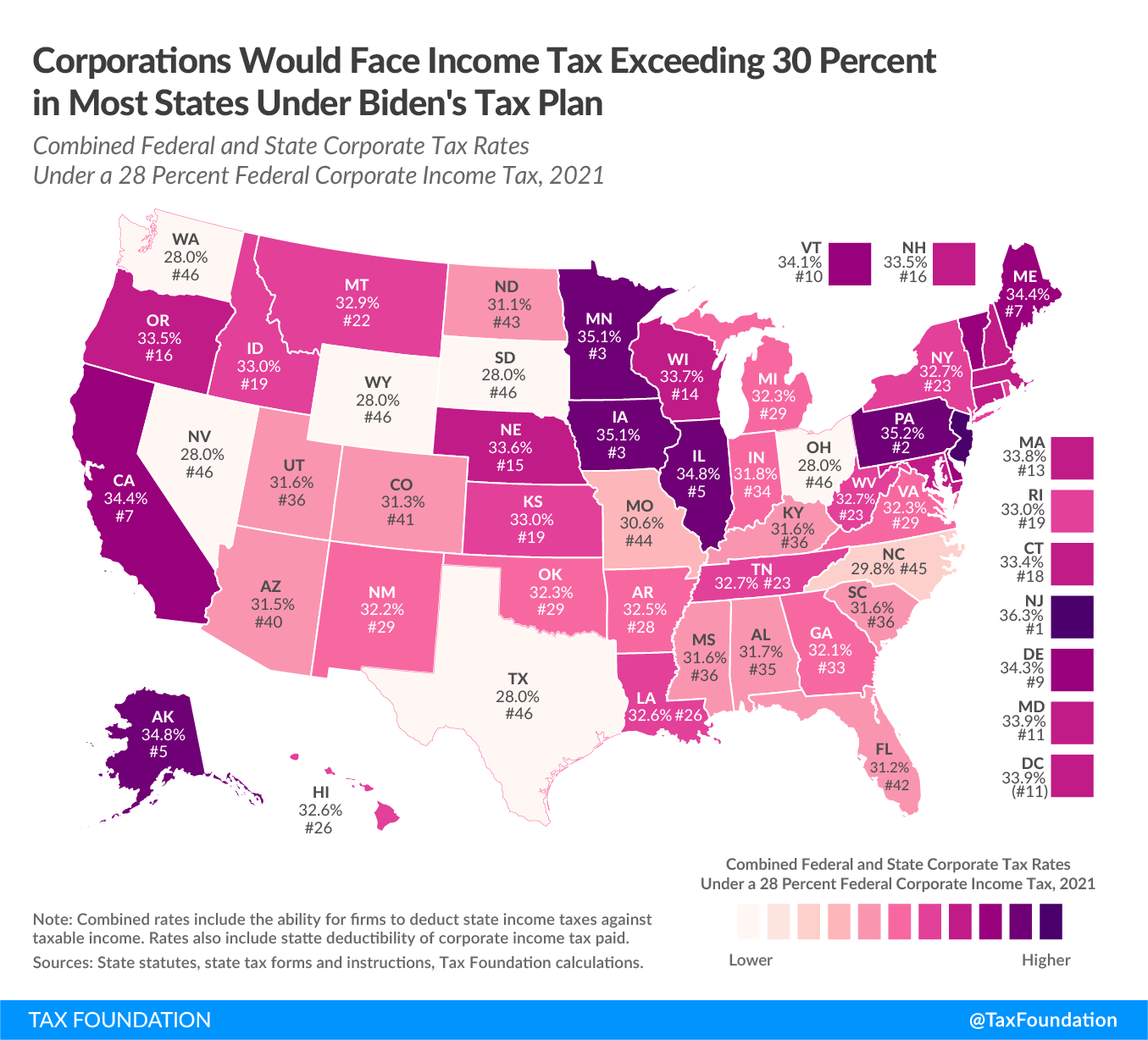President Joe Biden’s proposal to raise the federal corporate income tax rate to 28 percent would increase the combined average top taxA tax is a mandatory payment or charge collected by local, state, and national governments from individuals or businesses to cover the costs of general government services, goods, and activities. rate on corporate income to 32.4 percent, highest in the Organisation of Economic Co-operation and Development (OECD), reducing U.S. competitiveness and long-run economic growth. While the focus has been on the federal rate, it is important to include state tax rates when thinking about the total tax burden on corporate income.
Under current law, corporations in the United States pay federal corporate income taxes levied at a 21 percent rate plus state corporate taxes that range from zero to 11.5 percent, resulting in a combined average top tax rate of 25.8 percent in 2021.
If the federal corporate tax rate were raised to 28 percent this year, corporations operating in 32 states and the District of Columbia would face the highest combined corporate tax rate in the OECD, a distinction currently held by France with a 32.0 percent rate. Next year, France will lower its corporate tax rate to 25.8 percent, leaving Portugal with the highest corporate tax rate in the OECD at 31.5 percent.
Corporations in Iowa, Minnesota, New Jersey, and Pennsylvania would face a combined corporate income tax rate at or above 35 percent. Only seven states—Ohio, Nevada, North Carolina, South Dakota, Texas, Washington, and Wyoming—would face a corporate rate less than 30 percent, all of which forgo a corporate income taxA corporate income tax (CIT) is levied by federal and state governments on business profits. Many companies are not subject to the CIT because they are taxed as pass-through businesses, with income reportable under the individual income tax. except North Carolina, with a low rate of 2.5 percent.
Corporations may deduct state corporate income tax paid against federal taxable income, lowering the effective federal corporate income tax rate. For example, a corporation in Michigan may deduct tax paid at a 6 percent flat rate against a 28 percent federal corporate income tax, reducing its effective top federal rate to 26.3 percent and yielding a combined rate of 32.3 percent.
Additionally, three states allow corporations to deduct federal corporate income tax against some portion of state corporate income tax. Alabama and Louisiana allow full deductibility of federal corporate income tax liability against state liability, while Missouri permits a 50 percent deduction of federal corporate income tax liability, lowering the effective corporate income tax rate faced by corporations there. Iowa previously permitted a 50 percent deduction for federal corporate income taxes, but repealed the provision while lowering its corporate tax rate from 12 percent to 9.8 percent in 2021.
It is important to include state corporate income taxes when considering how raising the federal rate would impact U.S. competitiveness. Raising the combined U.S. corporate rate to the top of the OECD would encourage corporations to depart the U.S. and reduce economic output and worker wages across the income spectrum. Retaining the 21 percent corporate rate ensures the U.S. remains an attractive location for corporate investment.
Stay informed on the tax policies impacting you.
Subscribe to get insights from our trusted experts delivered straight to your inbox.
SubscribeShare this article
